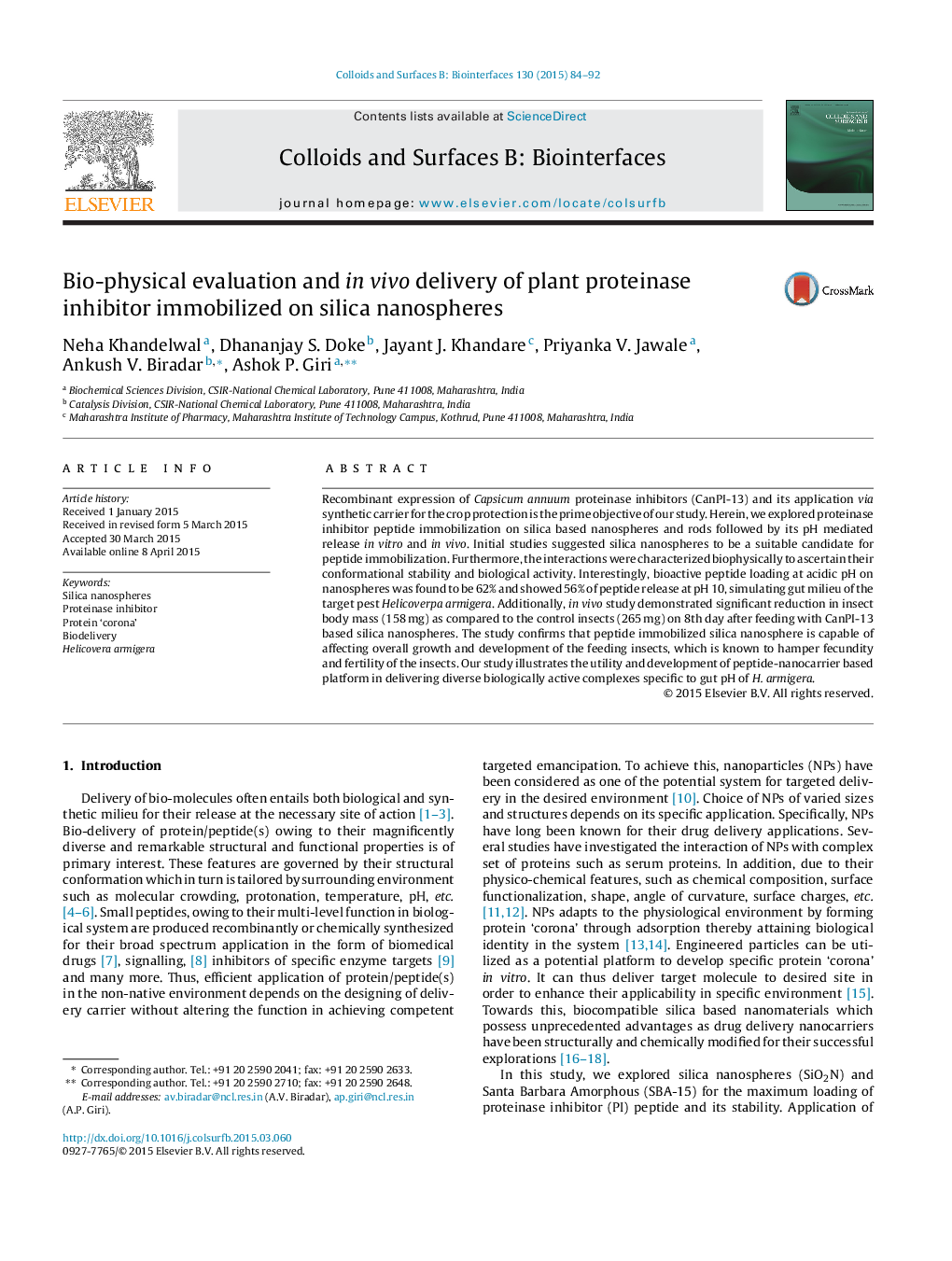| Article ID | Journal | Published Year | Pages | File Type |
|---|---|---|---|---|
| 599322 | Colloids and Surfaces B: Biointerfaces | 2015 | 9 Pages |
•Immobilization of plant peptide proteinase inhibitor on silica particles.•Biophysical characterization to determine peptide stability on silica nanospheres.•pH gated in vitro release of proteinase inhibitor from silica spheres.•In vivo efficacy of proteinase inhibitor immobilized silica nanosphere in insect.
Recombinant expression of Capsicum annuum proteinase inhibitors (CanPI-13) and its application via synthetic carrier for the crop protection is the prime objective of our study. Herein, we explored proteinase inhibitor peptide immobilization on silica based nanospheres and rods followed by its pH mediated release in vitro and in vivo. Initial studies suggested silica nanospheres to be a suitable candidate for peptide immobilization. Furthermore, the interactions were characterized biophysically to ascertain their conformational stability and biological activity. Interestingly, bioactive peptide loading at acidic pH on nanospheres was found to be 62% and showed 56% of peptide release at pH 10, simulating gut milieu of the target pest Helicoverpa armigera. Additionally, in vivo study demonstrated significant reduction in insect body mass (158 mg) as compared to the control insects (265 mg) on 8th day after feeding with CanPI-13 based silica nanospheres. The study confirms that peptide immobilized silica nanosphere is capable of affecting overall growth and development of the feeding insects, which is known to hamper fecundity and fertility of the insects. Our study illustrates the utility and development of peptide-nanocarrier based platform in delivering diverse biologically active complexes specific to gut pH of H. armigera.
Graphical abstractFigure optionsDownload full-size imageDownload as PowerPoint slide
